
Why You Shouldn’t Put Off Setting Up a Skin Treatment Plan (Even if you think you don’t need one)
Skincare treatment plans are essential for keeping your skin healthy and looking its best. But what is a treatment plan, and why should you have one?
Dr Michael Rich is a specialist dermatologist who has been performing tumescent liposuction for over 30 years. Find out if Liposuction is suitable for you at ENRICH Clinic.
At ENRICH Clinic, we have a wide range of dermatological and cosmetic body treatments tailored to individual body and patient needs.
At ENRICH Clinic, our treatments are performed by our medical team consisting of doctors, nurses, and dermatologists and are tailored to each patient’s skin health needs.
ENRICH Clinic is committed to your skin health and well-being with a range of dermatological & cosmetic treatments tailored to the individual. Our treatments are performed by our medical team consisting of doctors, nurses, and dermatologists.
Skin health is essential for everyone. ENRICH Clinic has a wide range of technologies and dermatological solutions to help you achieve your skin care goals.
The Portrait is a cosmetic device that uses plasma energy to rejuvenate skin. The Portrait is unique amongst high-tech cosmetic technology, as it triggers the regeneration of new skin. This is opposed to removing skin cells for a fresher complexion or stimulating collagen production to tighten skin.
The skin is made up of three layers: the epidermis, dermis and subcutis. The epidermis is the outer layer, while the subcutis is the inside layer closest to your muscles. The dermis is sandwiched in between.
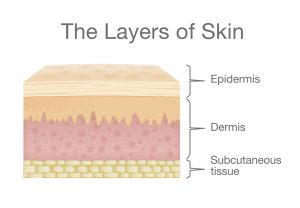 Epidermis: contains your pigment-producing cells, melanocytes (freckles, moles, liver spots), and gets thinner as we age, making pigmented marks more obvious
Epidermis: contains your pigment-producing cells, melanocytes (freckles, moles, liver spots), and gets thinner as we age, making pigmented marks more obvious
Dermis: contains collagen and elastin fibres that ensure skin stays firm and elastic, loses collagen as we age, causing wrinkles, lines, and sagging
Subcutis: acts as the base layer upon which the other layers sit, with blood vessels and nerves funnelled through, feeding the skin
There are two types of plasma, one you have probably heard of, and one you probably haven’t.
The first kind of plasma is the sort found in your blood – the liquid in which your red and white blood cells are suspended.
The second sort of plasma is a complex chemistry experiment that results in energy production. This is the sort of plasma that the Portrait uses.
Portrait Plasma Skin Regeneration (PSR) is a device that delivers energized nitrogen gas, through a handpiece, to resurface the skin. The deep thermal energy released during a Portrait Plasma Skin Regeneration session stimulates the growth of new collagen and elastin. The treatment is used to address wrinkles and fine lines, skin laxity, texture, and hyperpigmentation on the face, neck, chest, and hands.
 Unlike lasers, which use light energy to target a specific component of the skin, such as water, haemoglobin, or pigment, this device uses pulses of ionized inert nitrogen gas to alter structures below the surface of the skin, creating conditions for regeneration and improvement in wrinkles, acne scarring, skin texture, tone, and discoloration. This technique preserves the skin’s outer layers, which act as a protective biological dressing until new skin regenerates.
Unlike lasers, which use light energy to target a specific component of the skin, such as water, haemoglobin, or pigment, this device uses pulses of ionized inert nitrogen gas to alter structures below the surface of the skin, creating conditions for regeneration and improvement in wrinkles, acne scarring, skin texture, tone, and discoloration. This technique preserves the skin’s outer layers, which act as a protective biological dressing until new skin regenerates.
Portrait® alters structures below the surface, creating unique conditions for continuing regeneration and improvements in wrinkles, tone, texture and discolouration.
Portrait® skin regeneration begins with a simple procedure that takes between 15 -30 minutes for a full face treatment (excluding local anesthetic application & consent). Shortly after, you will see improvements in your skin texture and tone and diminished wrinkles giving you a new, more vibrant and youthful appearance.
This treatment, however, is not for cosmetic treatment for newbies or for young skin. There is a level of uncomfortableness and recovery. This treatment takes place in our ENRICH Clinic theatre and is performed by Dr Michael Rich.
Portrait is one of the first treatments clinically proven to regenerate skin. Its unique energy-transferring mechanism initiates regeneration deep below the skin’s surface, remodelling the skin’s architecture. This creates dramatic results that improve over time as the new architecture progressively replaces the old.
You will see improvements in skin texture, tone and reduction of fine wrinkles at lower levels of treatment and reduction of deep wrinkles at higher levels of treatment. New healthier collagen growth will improve contours and enhance your overall appearance.
You may experience a localized sensation of heat during the brief procedure. A topical anaesthetic is generally applied before the procedure, although your physician may recommend other approaches depending upon your specific needs. A full-face treatment usually takes less between 15 – 30 minutes.
Your physician or dermatologist will recommend an appropriate treatment regimen for you. Typically this will vary from 1-4 treatments depending upon the desired outcome, your skin condition and the level of improvement you are seeking relative to downtime. It usually takes from two days to just over a week (sometimes longer) for your skin to appear normal with or without makeup.
The innovative Portrait technology transfers nitrogen plasma energy to the architecture of the skin using a non-contact technique producing controlled, uniform regeneration of your skin.
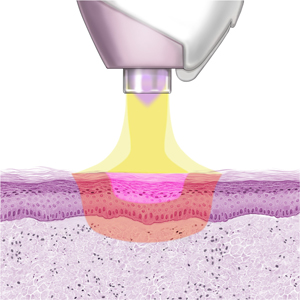 During the short procedure, the Portrait® transfers plasma energy to the treated area without direct contact to the skin. This technique preserves the skin’s outer layers which act as a protective dressing until new skin regenerates
During the short procedure, the Portrait® transfers plasma energy to the treated area without direct contact to the skin. This technique preserves the skin’s outer layers which act as a protective dressing until new skin regenerates
A numbing treatment is initially applied to minimise discomfort.
The treatment is tailored to the depth appropriate for each individual to deliver the best results. Following the Portrait treatment, there is an immediate period of discomfort as the energy of the treatment dissipates in the skin. The skin will feel very hot and tight. Slowly the skin will cool over the next 30 minutes or so.
You will be given a cooling system for your comfort and may leave the clinic when comfortable
Some initial swelling could occur in the first few days.
At lower levels of treatment, there will be some mild redness and flaking of the skin. At higher levels, the outer layer of skin browns and is shed 3 to s days after treatment. Once this occurs, the regenerated skin’s redness will last 2-3 days. Shedding may take a little longer at the edges of the treated area. Localized redness may also linger slightly in some patients. On darker skin, the localized redness may appear as a darker spot that lightens over time.
There is downtime, anywhere from 4-10 days, patient and treatment depending.
You will see results soon after your treatment. However, one of the most striking and unique advantages of The Portrait is that it stimulates a natural process of regeneration, producing results that progressively improve over time.
Skin responds and starts its tightening journey after 6-8 weeks. This tightening process can continue for up to 12 months.
Clinical studies show that the improvements you see following your treatment will become even more dramatic over time. These studies showed the improvement progression continues for at least one year after treatment. Patients are often surprised when they compare their appearances before treatment and twelve months later.
Your physician will advise you on the best way to combine treatments such as anti-wrinkle or dermal fillers. If you have had other procedures within the last 12 months, you should discuss the timing of your Portrait procedure with your physician or dermatologist.
The cost for Portrait will depend upon the treatment regimen you and your dermatologist or doctor choose. In general, the cost is comparable to other similar procedures however this is not a ‘budget’ treatment. With superior, longer-lasting results at every treatment level and fewer treatments required to get the results you want, Portrait can be a cost-effective choice.
Over time you will see the continuous improvement that is truly unique. Working below the surface of the skin, Portrait creates the right conditions and natural growth factors for generating new skin and creating new collagen for continuous improvement in wrinkles, tone and texture. Clinical studies show continued improvements for as long as a year after treatment.
*With all surgeries or procedures, there are risks. Consult your physician (GP) before undertaking any surgical or cosmetic procedure. Please read the consent forms carefully and be informed about every aspect of your treatment. Surgeries such as liposuction have a mandatory seven-day cooling-off period to give patients adequate time to be sure of their surgery choice. Results may also vary from person to person due to many factors, including the individual’s genetics, diet and exercise. Before and after photos are only relevant to the patient in the photo and do not necessarily reflect the results other patients may experience. Ask questions. Our team of dermatologists, doctors and nurses are here to help you with any of your queries. This page is not advice and is intended to be informational only. We endeavour to keep all our information up to date; however, this site is intended as a guide and not a definitive information portal or in any way constitutes medical advice.
"*" indicates required fields

Skincare treatment plans are essential for keeping your skin healthy and looking its best. But what is a treatment plan, and why should you have one?
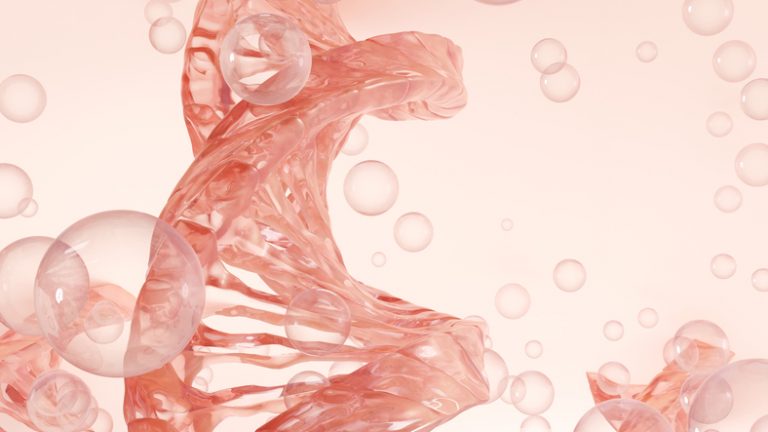
We’ll take a closer look at what collagen is, where it’s found in the body, and what it does. We’ll also explore the evidence for and against collagen supplements and whether they’re necessary for maintaining good health.
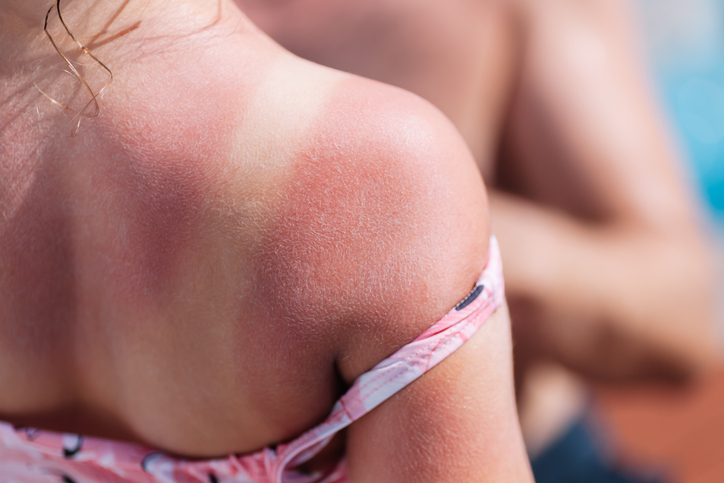
Rising temperatures, air pollution, and UV radiation contribute to an increased risk of skin problems. See the list of some of the ways climate change is impacting our skin health.
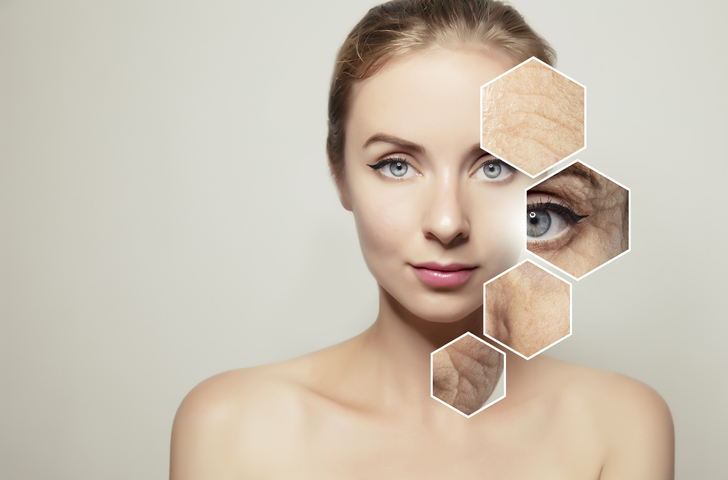
In this article, we will look at the different stages of skin ageing, what you can expect depending on your age, and some great treatment options you might like to consider.
Subscribe to the ENRICH newsletter and receive latest news & updates from our team.
Enrich Clinic acknowledges the Traditional Lands of the Wurundjeri Woi Wurrung and Bunurong peoples of the East Kulin Nations on which we work and trade. We pay respect to their Elders past, present and emerging. We extend our acknowledgement and respect to the LGBTQIA+ community who we welcome and support. Read our full Acknowledgement Statement here
